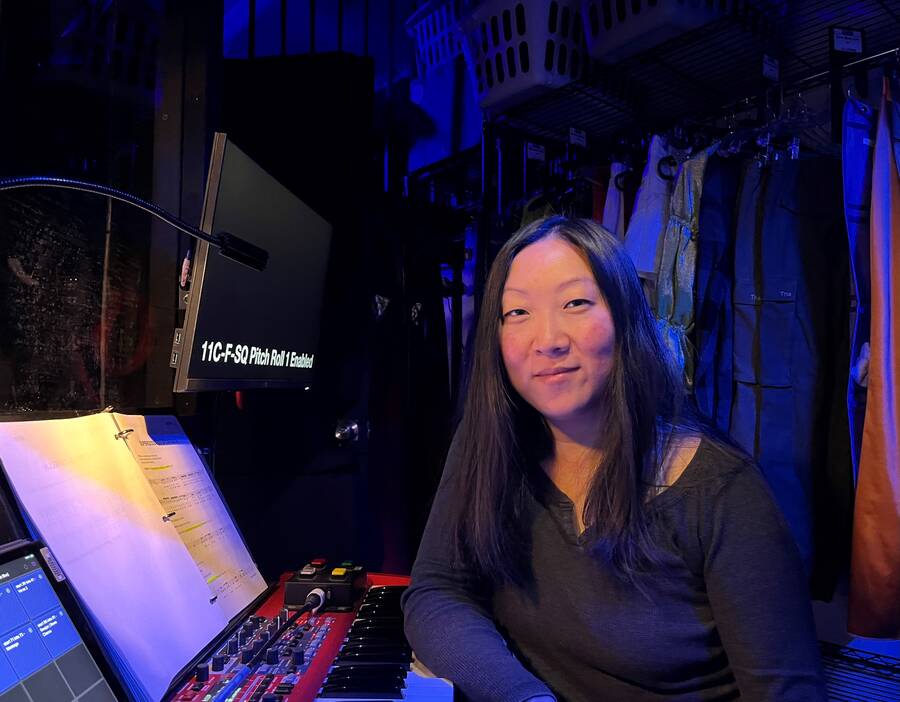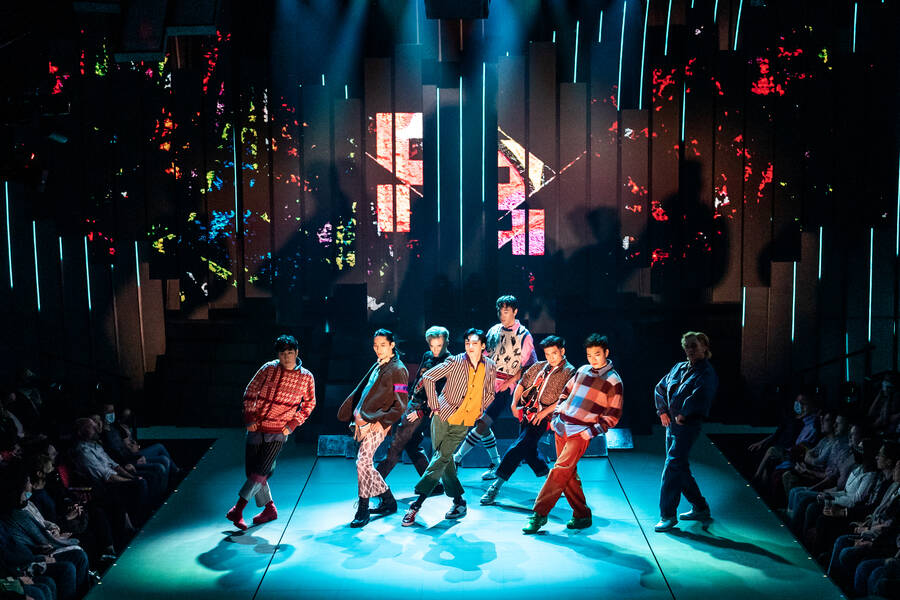In April 2017, Emily Shooltz, former associate artistic director of Ars Nova, reached out to gauge my interest in a “giant, immersive musical about K-pop.” My name was passed along by César Alvarez, who I had met shortly after they established the Polyphone Festival at University of the Arts in Philadelphia. The creators of this new show had already lined up a music director and were looking to fortify the team with an associate music director. The decision was easy for me: a resounding yes. How could I pass up the opportunity to collaborate with Korean and Asian American/Pacific Islander (AAPI) creatives, as well as a cast composed predominantly of Koreans? It seemed unreal.
I am an adopted Korean American who grew up in the suburbs of Albany. The closest proximity I had to Korean culture was my best friend Ann, a first-generation Korean American (or second generation, by Korean parameters). I was one of a small (though significant) group of Korean adoptees in my community. And while my parents made several attempts to link me up with my identity from a very young age, none of them stuck. It wasn’t until my late 20s that I began to embrace and enjoy my heritage.
My obsession with musical theatre started early, with Fiddler on the Roof and The Fantasticks as the ABCs. Toward the end of elementary school, my parents started taking me down to Manhattan for two-show-day adventures. We would get in line at TKTS (usually farther back), and one of my parents would walk me up to the board to view offerings. There were no apps or online postings or TodayTix then, so this ritual became a time-honored tradition. I couldn’t wait to see what was a whopping 50 percent off! My first Broadway show was The Secret Garden. These sporadic weekend trips continued through middle and high school.
The day we saw Rent, my molecules changed forever. I couldn’t have named it then, but seeing a tapestry of racial identities existing together in a modern context was hugely impactful. I had been performing in school musicals, but hadn’t considered that there could be a place for someone who looks like me on the commercial stage. With a fire in my gut, I ended up pursuing a BFA in musical theatre performance at Ithaca College.
And now here I am. On Broadway. In addition to KPOP’s 18 performer debuts on Broadway, there are a number of debuts among the creative and production teams, including my own. I’ve been a professional music director for the better part of the last 15 years, and could never have imagined the serendipity of making my debut with such a historic piece of musical theatre.
Consider: Until now, there have been just seven Broadway musicals, all falling into the category of “period piece,” that featured an AAPI presence (which I define as exceeding a single character). Until fairly recently, most weren’t authored by AAPI folks:
• South Pacific (1949, 2008 revival) by Richard Rodgers, Oscar Hammerstein II, and Joshua Logan
• The King & I (1951, revivals in 1977, 1985, 1996, 2015) by Richard Rodgers and Oscar Hammerstein II
• Flower Drum Song (1958, 2002 revival) by Richard Rodgers, Oscar Hammerstein II, and Joseph Fields (with the addition of David Henry Hwang for the 2002 Broadway revival)
• Pacific Overtures (1976, 2004 revival) by Stephen Sondheim and John Weidman
• Miss Saigon (1989, 2017 revival) by Claude-Michel Schönberg and Alain Boubil
• Shogun (1990) by Paul Chihara and John Driver
• Allegiance (2015) by Jay Kuo, Lorenzo Thione, and Marc Acito
Into this mix comes KPOP, penned by Jason Kim, Helen Park, and Max Vernon. But it’s not just the fact that this musical centers AAPI bodies and stories that thrills me; it is also that we’re spending time with people in contemporary circumstances, grappling with timeless tensions like the personal cost of ambition, the nature of authenticity, and parentage. (The last theme is of particular poignancy for me, as someone who went through the foster system in South Korea before being adopted at five months old.)

KPOP calls to mind elements of shows I love dearly, including A Chorus Line and Gypsy. However, our story is set in a culturally specific container in which the characters process conflict—a container that may feel unfamiliar to the typical Broadway-going audience at first glance, but is deeply connected to musical theatre tradition at its core.
In New York City, a cosmopolitan atmosphere rich with progressive thinkers, it may seem quite natural for a production like this to roll into the 2022 Broadway season, especially after the “racial reckoning” we’ve all come through and continue to grapple with. But I want to draw your attention to this: It is a radical act. To witness these charismatic, hungry, hopeful young AAPI artists navigate a story where they get to be nuanced, funny, and flawed modern characters on a Broadway stage is truly groundbreaking! It is a story I never thought I’d see, and one which I believe will have a profound impact on how AAPI Americans cut through reality, pursuing dreams with a stronger sense of confidence than I had growing up.
I love musical theatre with my whole self. It has been my home for as long as I can remember, both personally and professionally. I’ve had the great fortune of seeing shows on Broadway since I was 12. To now be part of a theatre season there, among icons of all generations, is a dizzying honor. And to be there with KPOP—a love letter to American musical theatre, and an open hand inviting you to experience a pioneering facet of Korean culture—feels like all parts of my humanity coming together in celebration.
Amanda Morton (she/her) is a music director based out of the NYC region.


